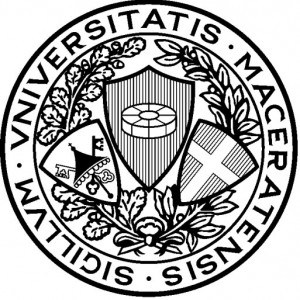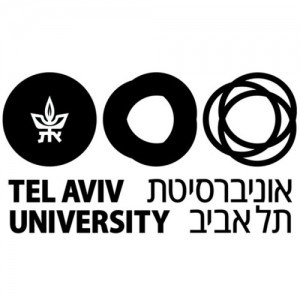Photos of university / #edinburghuniversity
The MSc in Science Communication and Public Engagement at the University of Edinburgh is a comprehensive postgraduate programme designed to equip students with the knowledge, skills, and practical experience necessary to excel in science communication across a variety of settings. This innovative and interdisciplinary course combines theoretical foundations with hands-on activities, enabling graduates to effectively engage diverse audiences with scientific concepts, research, and innovations. The programme covers essential topics such as science journalism, digital science communication, public understanding of science, policy engagement, and the role of science in society. Students will explore the ethical dimensions of science communication, learn to craft compelling narratives, and develop strategies to communicate complex scientific ideas in accessible and engaging ways.
Throughout the programme, learners will have opportunities to work on real-world projects, collaborate with scientists and communicators, and participate in internships and public engagement events. The curriculum is designed to foster critical thinking, creativity, and adaptability, preparing students for careers in science communication, media, outreach, policy advice, and education. Students also benefit from the university’s strong connections with research institutions, science media outlets, and public engagement organizations, providing valuable networking opportunities. Whether graduates aim to work as science journalists, public information officers, science educators, or policy advisors, this MSc programme provides a solid foundation and practical skills to communicate science effectively and responsibly in a rapidly evolving media landscape. The University of Edinburgh’s commitment to excellence in research and teaching ensures that students receive a world-class education in the field of science communication and public engagement, making them well-equipped to contribute meaningfully to public understanding of science and technology in their future careers.
The MSc in Science Communication and Public Engagement at the University of Edinburgh is a dynamic and comprehensive programme designed to equip students with the essential skills and knowledge to effectively communicate scientific ideas to diverse audiences. This programme combines theoretical understanding with practical experience, enabling graduates to bridge the gap between scientists and the public. Throughout the course, students explore a wide range of topics including the principles of science communication, public engagement strategies, media training, science journalism, digital communication, and ethical considerations in science dissemination. The curriculum emphasizes developing critical thinking and adaptive communication skills necessary for engaging with different communities, policymakers, media outlets, and educational institutions.
Students participate in a variety of learning activities such as lectures, seminars, workshops, and hands-on projects that simulate real-world scenarios. They are encouraged to create their own science communication content, including blogs, videos, social media campaigns, and public talks, under guided supervision. The programme also offers opportunities for internships and placements, enabling students to gain practical experience in science communication organisations, media companies, research institutions, or government agencies. This real-world exposure aims to prepare students for careers in science journalism, science outreach, policy advisory roles, media consultancy, or freelance science communication.
The MSc programme places a strong emphasis on research skills and evidence-based practice, encouraging students to critically evaluate communication strategies and measure their impact. Additionally, students have access to the university’s state-of-the-art facilities, including digital media labs and multimedia production equipment. The programme is delivered by distinguished faculty members who are experts in science communication, media, and public engagement, fostering an innovative learning environment. Graduates of the MSc in Science Communication and Public Engagement will be well-positioned to advance science literacy, foster public understanding of scientific issues, and contribute meaningfully to informed decision-making in society.
Admission to the MSc in Science Communication and Public Engagement program at The University of Edinburgh typically requires applicants to hold an undergraduate degree in a relevant discipline, such as science, communication, media studies, or a related field. Prospective students are expected to demonstrate a strong interest in science communication, public engagement, and outreach activities, supported by relevant experience or academic background. Applicants must submit a completed application form, university transcripts, a personal statement outlining motivation and suitability for the program, and two academic references. Proof of English language proficiency is required for non-native speakers, usually demonstrated through IELTS or TOEFL scores, meeting the University's minimum requirements. The program values applicants with a background in sciences combined with an interest in communication, as well as those with experience in public engagement activities or science outreach work. Selection is competitive and based on academic achievement, relevant experience, and the quality of the personal statement. The MSc program aims to equip students with theoretical knowledge and practical skills necessary for effective science communication and public engagement careers, including training in media skills, science literacy, ethical considerations, and strategic communication planning. Candidates are encouraged to demonstrate critical thinking, creativity, and a commitment to promoting scientific understanding among diverse audiences. The program also seeks applicants eager to contribute to science policy and societal debates, highlighting the importance of engagement in addressing contemporary issues. In summary, the requirements focus on academic qualifications, relevant experience, interest in science communication, and preparedness to engage with diverse communities. The program code and specific entry deadlines can be found on the University's admissions website, and applicants are advised to review specific criteria carefully before submitting their applications.
Want to improve your English level for admission?
Prepare for the program requirements with English Online by the British Council.
- ✔️ Flexible study schedule
- ✔️ Experienced teachers
- ✔️ Certificate upon completion
📘 Recommended for students with an IELTS level of 6.0 or below.
The University of Edinburgh offers a comprehensive range of funding opportunities for students enrolled in the MSc in Science Communication and Public Engagement. Prospective students can explore various scholarships, grants, and bursaries designed to support their academic pursuits. These funding options include internal university scholarships such as the Edinburgh Global Summer School Scholarships, which sometimes extend to postgraduate programs, and the University of Edinburgh’s postgraduate tuition fee discounts for certain categories of students. Additionally, the university provides information on external funding sources, including governmental and private sector scholarships, research council grants, and funding from charitable organizations aligned with science communication and public engagement themes.
Students are encouraged to investigate funding possibilities through the University’s dedicated scholarships and funding page, where they can find detailed eligibility criteria, application procedures, and deadlines. The university also provides guidance on applying for national research and innovation grants, which can be particularly relevant for students involved in research-led aspects of science communication. Many students finance their studies through a combination of personal savings, employer sponsorships, and various external scholarships, emphasizing the importance of early application and thorough preparation.
International students should pay particular attention to specific scholarships available to them, including the developing country scholarships and regional awards. The university supports students through dedicated financial aid advisors who can assist with application processes and provide tailored advice regarding eligible funding schemes. Some programmes may also offer teaching assistantships or part-time work opportunities within the university, providing additional financial support and valuable professional experience. Overall, the university’s funding landscape aims to make postgraduate education accessible and affordable for a diverse student body interested in advancing science communication and public engagement skills.
The MSc in Science Communication and Public Engagement at the University of Edinburgh is a postgraduate programme designed to equip students with the skills and knowledge necessary to communicate complex scientific ideas to diverse audiences effectively. The programme emphasizes both the theory and practice of science communication, including media engagement, public outreach, policy engagement, and social media strategies. It aims to prepare graduates for careers in science journalism, science outreach, public policy, and communication departments within scientific organizations, government agencies, or research institutions.
Students enrolled in this programme benefit from a multidisciplinary approach, combining insights from communication studies, psychology, media studies, and science. The curriculum typically covers topics such as the role of science in society, strategies for effective engagement, digital media tools, ethical considerations in science communication, science policy, and evaluation methods for public engagement initiatives. Practical components include workshops, seminars, and opportunities to participate in real-world science communication projects.
The programme is delivered by experienced academics and practitioners who bring a wealth of knowledge from their respective fields. Learning methods include lectures, case studies, group projects, individual assignments, and internships. Students also have the opportunity to develop their own communication projects, often in collaboration with external organizations such as museums, science centers, or research projects.
Students are encouraged to critically reflect on current challenges in science communication, such as misinformation and public trust, and to develop innovative approaches for fostering scientific literacy and engagement. The programme also offers networking opportunities through guest lectures, conferences, and industry collaborations, providing students with valuable contacts in the field.
Graduates of the MSc in Science Communication and Public Engagement typically go on to work in scientific media, public relations, policy advice, educational outreach, or further research in communication studies. The programme is especially suitable for those passionate about making science accessible and engaging to the public, and for professionals seeking to enhance their skills in this vital area.
The University of Edinburgh provides a supportive academic environment, along with access to extensive resources, including libraries, research centers, and professional development services. The programme usually spans one year full-time or part-time options are available, allowing flexibility for working professionals or international students. Overall, this MSc offers a comprehensive training to become an effective science communicator and public engagement specialist, contributing to a scientifically informed society.











